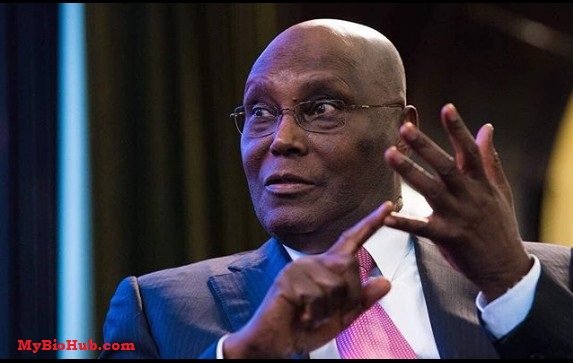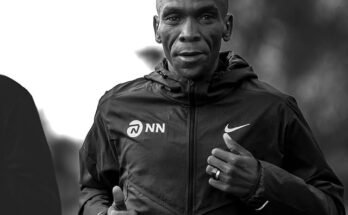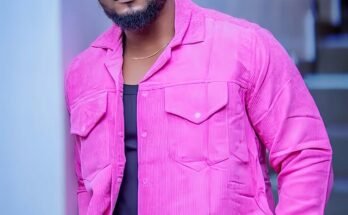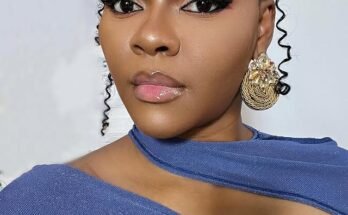Atiku Abubakar, GCON was born on November 25, 1946 in Jada, Adamawa State as the only child of Fulani trader and farmer Garba Abubakar, and his second wife, Aisha Kande. A Nigerian politician, businessman and philanthropist, who served as the second elected vice-president of Nigeria from 1999 to 2007, on the platform of the People’s Democratic Party (PDP), with President Olusegun Obasanjo.
His father opposed Western education and as a result kept Atiku out of the traditional school system. His father was jailed because of his actions but his wife Aisha Kande bailed him. At the age of eight Abubakar enrolled in the Jada Primary School. In 1960, he was admitted to Adamawa Provincial Secondary School in Yola where he graduated with a Grade Three WASC/GCE Certificate in 1965.
After his secondary education, Atiku studied a short while at the Nigeria Police College in Kaduna but left when he was unable to present an O-Level Mathematics result. He worked briefly as a Tax Officer in the regional Ministry of Finance, from where he gained admission to the school of Hygiene in Kano in 1966. He then graduated with a Diploma in 1967 and that same year he enrolled for a Law Diploma at the Ahmadu Bello University Institute of Administration, on a scholarship from regional government.
After graduation, Abubakar worked in the Nigeria Customs Service for twenty years, rising to become the Deputy Director, as the second highest position in the Service was then known. He retired in April 1989 and took up full-time business and politics. He ran for the office of governor in the Gongola State (now Adamawa and Taraba States) in 1991, and for the Presidency in 1993, placing third after MKO Abiola and Babagana Kingibe in the Social Democratic Party (SDP) primaries.
Abubakar is a co-founder of Intels (an oil servicing business with extensive operations in Nigeria and abroad). He is also the founder of Adama Beverages Limited, and the American University of Nigeria (AUN), both in Yola, Adamawa as well as an animal feed factory. He also practiced agriculture, acquiring 2,500 hectares of land near Yola to start a maize and cotton farm. The business fell on hard times and closed in 1986. He then ventured into trading, buying and selling truckloads of rice, flour and sugar.
READ: Nasir El Rufai Biography
Abubakar married four wives. His first wife Titilayo Albert, who he secretly married in December 1971, in Lagos has 4 children; Fatima, Adamu, Halima and Aminu. His second wife Ladi Yakubu whom he got married to in 1979 has six children: Abba, Atiku, Zainab, Ummi-Hauwa, Maryam and Rukayatu. In 1983, he married his third wife, Princess Rukaiyatu, daughter of the late Lamido of Adamawa. She gave birth to AIsha, Hadiza, Aliyu (named after her late father), Asmau, Mustafa, Laila and Abdulsalam. His fourth wife, Fatima Shettima, followed in 1986. Fatima gave birth to her first child Amina (Meena), Mohammed and two sets of twins Ahmed and Shehu, Zainab and Aisha then her last daughter Hafsat.
Abubakar later divorced Ladi, allowing him to marry, as his fourth wife (the maximum permitted him as a Muslim), Jennifer Iwenjora, who then became Jamila Atiku-Abubakar. Jennifer gave birth to Abdulmalik, Zara and his youngest child, Faisal.
He began his journey into politics in the early 1980s, when he worked behind-the-scenes on the governorship campaign of Bamanga Tukur, who at that time was managing director of the Nigeria Ports Authority. He canvassed for votes on behalf of Tukur, and also donated to the campaign. Towards the end of his Customs career, he met . Abubakar was drawn by Yar’Adua into the political meetings that were now happening regularly in Yar’Adua’s Lagos home. He later met Shehu Musa Yar’Adua, who had been second-in-command of the military government that ruled Nigeria between 1976 and 1979 and he drew him into politics where he was elected a National Vice-Chairman of the Peoples Front of Nigeria in 1989, the political association led by Yar’Adua, to participate in the transition programme initiated by Head of State Ibrahim Babangida.
Abubakar ran for the office of the president of Nigerian in 1992 under the platform of SDP but lost to MKO Abiola. In 1999, he was sworn in as the Vice president of the Federal Republic of Nigeria with Olusegun Obasanjo as the president. While he was vice president, he, alongside South African Deputy President Jacob Zuma, launched the South Africa Nigeria Binational Commission.
After his unpleasant second tenure with President Olusegun Obasanjo, He ran for the office of the president on the platform of the Action Congress, having quit the PDP on account of his issues with President Obasanjo. Abubakar lost the election, placing third after Umaru Yar’Adua and Muhammadu Buhari of the All Nigeria Peoples Party (ANPP).
In January 2011, Abubakar contested for the Presidential ticket of his party alongside President Jonathan and Sarah Jubril, and lost the primary, garnering 805 votes to President Jonathan’s 2736. On 2 February 2014, Abubakar left the Peoples Democratic Party to the join All Progressives Congress.
On Friday, 24 November 2017, Abubakar announced his exit from the All Progressives Congress (APC), a party he helped to form. On December 3, 2017 he returned to the Peoples Democratic Party (PDP).
In 2012 Abubakar donated $750,000 to the National Peace Corps Association in the United States, “to fund a new initiative featuring global leaders who will discuss Peace Corps’s impact. In August 2013 he sponsored a students’ essay contest to generate solutions to Nigeria’s most pressing institutional educational challenges. Abubakar also issued scholarship to 15 escapees of the Chibok schoolgirls kidnapping.
In 1982 Abubakar was awarded the chieftaincy of the Turaki of Adamawa by Adamawa’s traditional ruler, Alhaji Aliyu Mustafa. In 2011, he was honoured with the Harris Wofford Global Citizen Award by the National Peace Corps Association. In June 2017, Abubakar was awarded the chieftaincy title of the Waziri of Adamawa, and his previous title of Turaki was transferred to his son, Aliyu.



